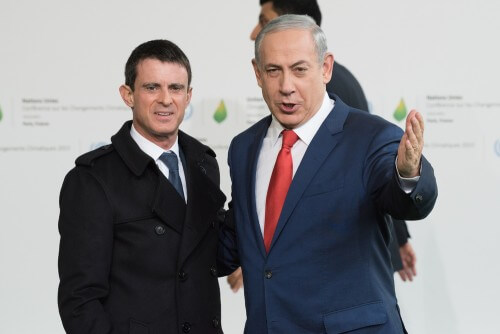This is what emerges from the meeting of the subcommittee of the Science and Technology Committee for the Promotion of Renewable Energy Technologies chaired by MK Yael Cohen-Faran, which was dedicated to discussing the status of the national program for state assessments of climate change * MK Cohen Faran: "There is a disconnect between the political echelon and the experts who deal with the issue and warn of the dangers that are expected in the area"

Chairman of the committee MK Yael Cohen Faran: "There is a disconnect between the political echelon and the experts who deal with the issue and warn of the dangers that are expected in the region"
The sub-committee of the Science and Technology Committee for the Promotion of Renewable Energy Technologies headed by MK Yael Cohen-Faran met yesterday [Monday] to discuss the state of the national program for state climate change assessments.
The chairman of the committee, MK Yael Cohen-Faran said at the beginning of the discussion: "The climate crisis came much faster than they thought and it is already here. There is some sort of disconnect between the political echelon and the experts who deal with the issue and warn of the dangers that climate change poses to the Middle East region. The committee is meeting to discuss how we prepare for things at the government level and above all to bridge the gap so that there will no longer be ministers surprised that the State of Israel is supposed to be affected by all the climate changes. We know how to be well in the international arena in terms of technological advancement, and there is also a big and important place in the environmental issue to be present and advance in the international arena and not just accept the preparation from there."
Alon Zasek, Deputy Director of Natural Resources at the Ministry of Environmental Protection, presented to the committee the main phenomena predicted in our region as a result of climate change: increase in temperature, decrease in the amount of precipitation and its distribution, rise in sea level, heat waves, extreme weather events and floods. According to him, "The most important thing is the establishment of a directorate in charge of transportation, inter-ministerial coordination, promoting research, performing risk assessments and making information accessible. A decision-making proposal has already been distributed to the government offices and we hope that it will be a matter of months until it is approved and the action plans are launched. The goal is to introduce the climate issue into the DNA of all the ministries' plans, so that, for example, the Ministry of Religion will also know how it can integrate the preparation in everything related to its ministry and not only ministries that communicate directly with the issue of the environment."

Dr. Sinaia Netanyahu, the former chief scientist of the Ministry of Environmental Protection told the committee about the report submitted by the ministry with recommendations to the government for a national strategy and action plan. According to her, the most important bottom line is that Israel does not have research and basic knowledge of where we really stand in terms of Israel's climate danger, "There has been a government decision since 2009 to prepare for climate change - but why exactly prepare? We must create knowledge bases to know where we stand and above all we must offer funding for risk assessments and scientific coordination. The first thing is to establish a body that will officially say what the dangers of Israel are in this matter."
In the committee, Dr. Netanyahu expressed her disappointment that the National Emergency Authority did not adopt to include the issue of climate change in the Authority's strategic dangers, "despite the meetings with us, they chose not to define the climate issue as a matter of national attribution and indeed we failed to harness Rachel that this too would be in the list of strategic threats".
Ortal Yona, Director of Administration and Planning at the Ministry of Finance: "We continue to accelerate the issue of green building regulations - inter-ministerial work is taking place with the Ministry of Energy, Construction and Housing - and we hope that by the end of the year the issue will be finished."
Dr. Amir Givati from the Water Authority said to the committee that "we are making great progress in that we have very qualified work on what will happen to Israel's water sources in light of global warming - climate change will cause an increase in drought and therefore the Water Authority is working to increase desalination, to inject water from streams and to seriously treat runoff The urban - the plan to capture the runoff and inject it into the groundwater."
In the committee, the representative of the metrological service lamented that all the bodies rely on the service's forecasts but they are still working with computers from six years ago when computers are more advanced, they will give targeted and earlier forecasts. The chairman of the committee turned to the representative of the treasury, Uri Dvir, who was present at the hearing, and he said that the treasury would examine a budget for this purpose.
Iran Feinmesser, Research Associate at the Ministry of Internal Security, said in the discussion that climate change requires special preparation in his office, "just as an example - heat conditions and climate change, require uniforms and emergency vehicles, all of which require a budget of hundreds of millions of NIS. The biggest lack that exists today is a computer that is required for a research infrastructure that will pass in front of all bodies and be able to predict the processes and gaps and what is needed for each body and organization. It is illogical for it to be examined individually by each office."
The chairman of the committee, MK Yael Cohen Faran closed the discussion with the hope that the government's decision that was presented will be passed as soon as possible and that the whole issue of preparing for climate change will be at the heart of the action in all government ministries.
